Research Report
 CU Boulder engineers and physicists are working with NASA as part of a multi-university institute seeking to advance quantum sensing technology for next-generation Earth science applications.
CU Boulder engineers and physicists are working with NASA as part of a multi-university institute seeking to advance quantum sensing technology for next-generation Earth science applications.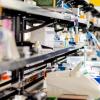 Activities led by Venture Partners at CU Boulder, the university’s commercialization arm, generated an economic impact of $8 billion nationally and $5.2 billion in the state of Colorado over the last five years.
Activities led by Venture Partners at CU Boulder, the university’s commercialization arm, generated an economic impact of $8 billion nationally and $5.2 billion in the state of Colorado over the last five years.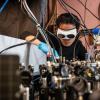 Breathalyzer based on frequency comb spectroscopy quantum tech shows promise as a non-invasive diagnostic test for an array of diseases.
Breathalyzer based on frequency comb spectroscopy quantum tech shows promise as a non-invasive diagnostic test for an array of diseases. When pregnant moms breathe dirty air, it may adversely impact their baby’s brain, CU Boulder research suggests.
When pregnant moms breathe dirty air, it may adversely impact their baby’s brain, CU Boulder research suggests. There are new insights into one promising method for removing carbon from the atmosphere: using electricity to manipulate chemicals that then pull carbon out of the air.
There are new insights into one promising method for removing carbon from the atmosphere: using electricity to manipulate chemicals that then pull carbon out of the air.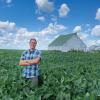 CU Boulder’s International Genetically Engineered Machine team has developed a “magic soybean” that can churn out scarce pharmaceutical compounds while going easy on the environment.
CU Boulder’s International Genetically Engineered Machine team has developed a “magic soybean” that can churn out scarce pharmaceutical compounds while going easy on the environment. The number of farms across the globe will be halved by the end of the century, posing significant risks to the world’s food systems, according to recent research by Zia Mehrabi, assistant professor of environmental studies.
The number of farms across the globe will be halved by the end of the century, posing significant risks to the world’s food systems, according to recent research by Zia Mehrabi, assistant professor of environmental studies.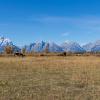 New research has revealed that horses may have spread throughout the American West much sooner and faster than many scholars believed.
New research has revealed that horses may have spread throughout the American West much sooner and faster than many scholars believed.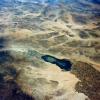 Over half of the world’s freshwater lakes are in decline, storing less water than three decades ago, according to a study led by CIRES researchers that was featured on the cover of Science.
Over half of the world’s freshwater lakes are in decline, storing less water than three decades ago, according to a study led by CIRES researchers that was featured on the cover of Science.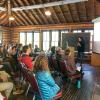 Twenty-five miles west of Boulder, the Mountain Research Station has long been a hub for world-class research and education.
Twenty-five miles west of Boulder, the Mountain Research Station has long been a hub for world-class research and education.

